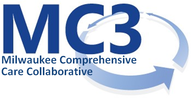Definition
Trauma-informed care is care that is grounded in and directed by a thorough understanding of the neurological, biological, psychological and social effects of trauma and violence on humans. Having this awareness must include basic training/education accessible to all individuals who provide a helping relationship. A basic understanding of trauma should ground not only direct interventions, but also other services and general helping environments.
Examples of Indicators:
- Questions regarding trauma history are on intake assessments and throughout participation in services.
- Documentation of receipt of trauma-informed trainings/education for all staff.
- Offering specific programming relevant to the services you provide (e.g., trauma treatment groups, gender-specific housing, gender-sensitive staff assignments).
- Sensitivity to feelings of safety in service environment (e.g., lighting, space, friendly, welcoming staff, available security escort).
- Use of trauma-informed language in agency policies and procedures.
- Utilization of an organizational trauma-informed assessment at all agency levels.
- Satisfaction, comfort and safety for individuals are assessed through surveys, focus groups, in-depth interviews, and consumer advisory panels.
Assessments:
- Trauma-Informed Care Organizational Self-Assessment for Consumer-Run Recovery Organizations: Designed to help consumer-run mental health recovery organizations develop trauma-informed care in their environment, programs, and services; comprises two main sections, Supporting Staff Development and Creating a Safe and Supportive Environment, each of which has several subdomains.
- Trauma Screen Questionnaire: Simple 10-question (Y/N) tool for a person presenting for help.
- Life Event Checklist (LEC): Brief, 17-item, self-report measure designed to screen for potentially traumatic events in a respondent's lifetime; assesses exposure to 16 events known to potentially result in PTSD or distress, and includes one item assessing any other extraordinarily stressful event not otherwise captured.
- Abbreviated PCL-C: Shortened version of the PTSD Checklist – Civilian version; developed for use with in primary care or other similar general medical settings.
- Is Your Work Trauma Informed? A Self-Assessment Tool: For providers and advocates to evaluate their own practices and understanding of how trauma effects individuals seeking services.
- SAMHSA TIP 57: Includes a 20-question tool for individuals seeking help (p. 107).
- IMPACT Symptoms Form: Checklist of 43 items/symptoms related to mental health issues and trauma; screens for potential mental health or trauma issues requiring further assessment and possibly treatment.
- Creating Cultures of Trauma-Informed Care (CCTIC): Self-assessment and planning protocol to provide clear, consistent guidelines for agencies and programs interested in facilitating trauma-informed modifications in their service systems; used in the development, implementation, evaluation and ongoing monitoring of trauma-informed programs.
